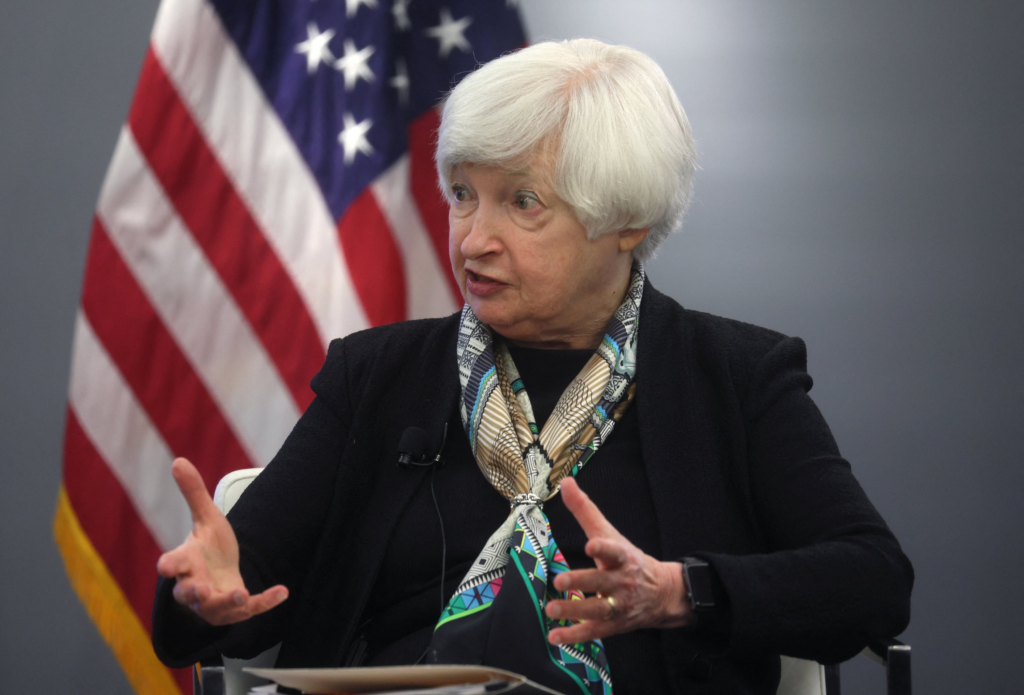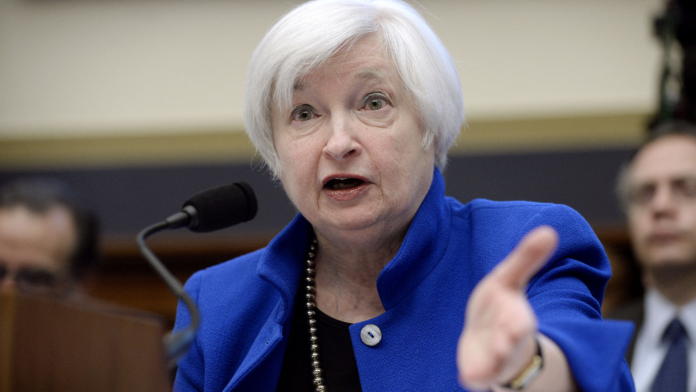In the world of global finance, credit ratings serve as beacons of trust, illuminating the path for investors seeking secure havens. However, recently, the firmament of creditworthiness has been stirred as the United States faces a “puzzling” and “entirely unwarranted” decision by credit rating agency Fitch. The decision to strip the US government of its top-tier credit rating has left many market participants scratching their heads, as Treasury Secretary Janet Yellen defends the nation’s economic robustness.
Fitch’s move has sent ripples through the financial landscape, causing global stock markets to falter and sparking a scramble for higher returns among buyers of US government debt, known as Treasuries. While the S&P 500 and Nasdaq experienced declines, the reaction has been relatively restrained, unlike the 2011 upheaval triggered by a similar downgrade from rival ratings firm S&P.
Amidst the commotion, it becomes vital to understand the significance of credit ratings. They serve as barometers of a borrower’s trustworthiness, influencing borrowing costs and impacting the broader economy. Only a select few countries, including Germany, Denmark, and Switzerland, enjoy the highest rating from the major rating companies. The downgrade may seem to be a grave concern for smaller emerging markets, but its implications on larger economies like the US are more nuanced.
Fitch attributed the downgrade to increasing political dysfunction in the US and rising public debt, which stemmed from a contentious congressional battle over spending. However, Ms. Yellen firmly rejected the basis for the downgrade, emphasizing that Fitch’s assessment fails to acknowledge the strides made in governance and legislative achievements in the past years.

Indeed, many experts concur that the US economy remains fundamentally robust, well-equipped to fulfill its obligations. Yet, the report casts a shadow of doubt, reflecting weakening confidence in the US as a borrower, fueled by recent events that shook the nation’s core. Despite potential market turmoil, this downgrade highlights the costly consequences of political gamesmanship, prompting concerns over escalating interest rates that could burden taxpayers with billions in extra costs.
As the world watches the enigmatic dance of credit ratings unfold, the underlying message is clear: trust and stability in the global financial landscape hang in delicate balance. The fate of the US economy and its standing in the international community will depend on how swiftly the nation can address the concerns raised by Fitch and, more importantly, restore confidence in its ability to navigate the stormy seas of politics and finance.
While the US Treasury securities may retain their status as the world’s preeminent safe asset, the call to action is clear: address the underlying issues head-on, and reaffirm the nation’s resilience and economic strength. The world awaits the next chapter in this intriguing saga, eager to witness whether the US can rise above the political turbulence and reaffirm its position as a beacon of stability in the global financial system.


